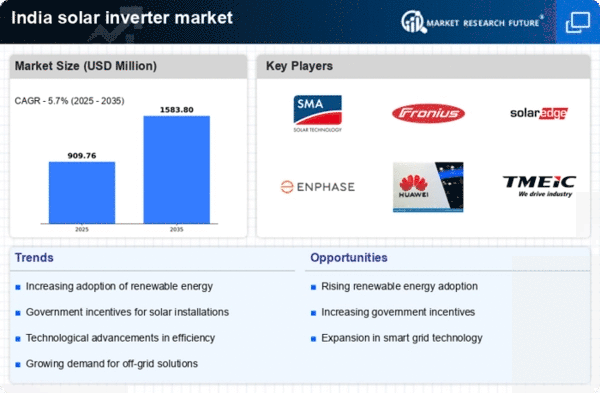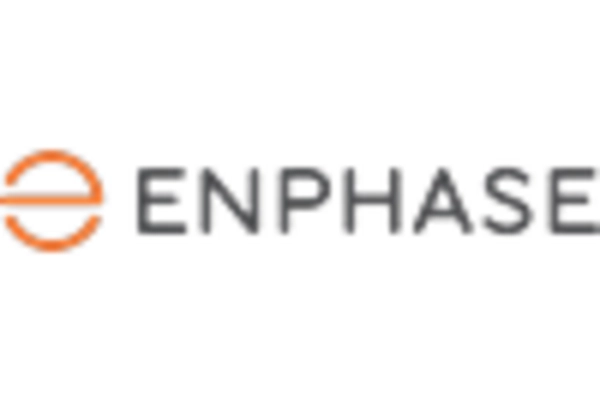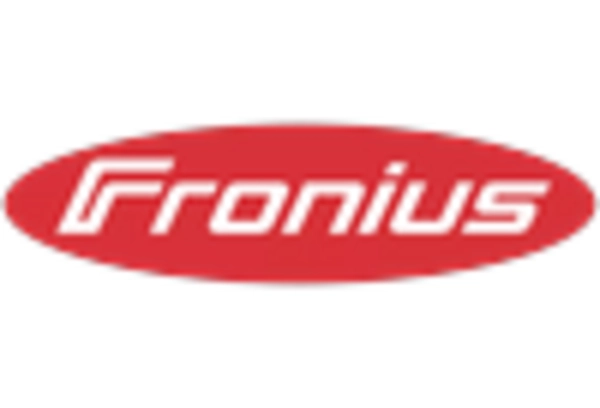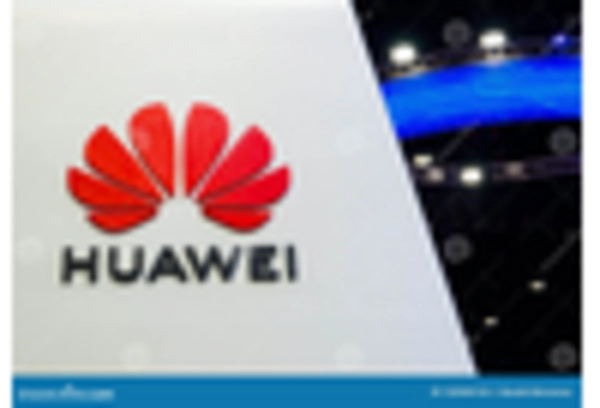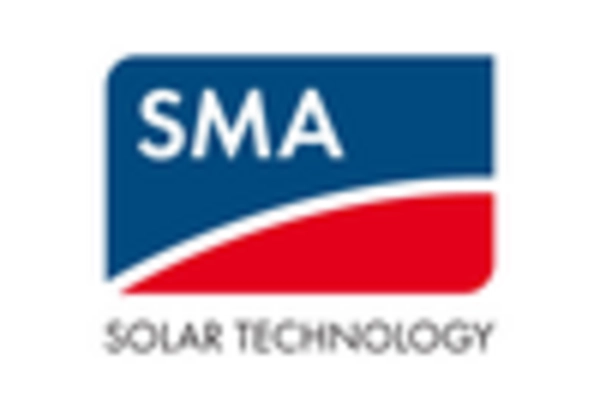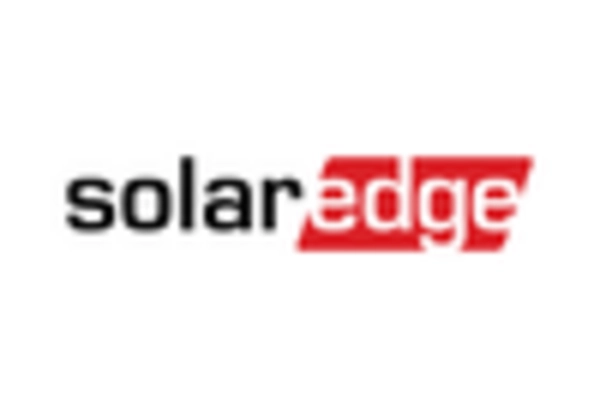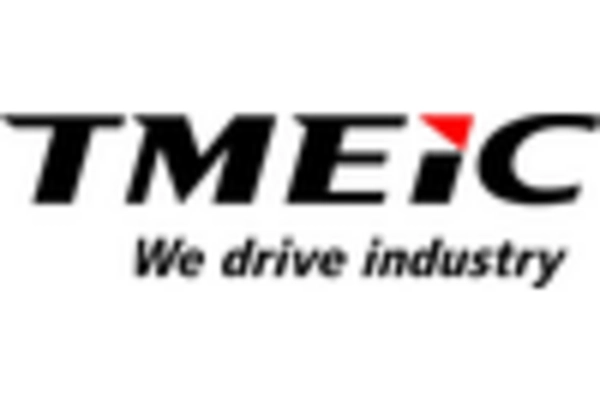Rising Energy Demand
The increasing energy demand in India is a pivotal driver for the solar inverter market. As urbanization accelerates and the population grows, the need for reliable and sustainable energy sources intensifies. The Indian government has set ambitious targets to achieve 500 GW of renewable energy capacity by 2030, which includes a significant contribution from solar energy. This surge in energy requirements necessitates the deployment of efficient solar inverters to convert solar energy into usable electricity. The solar inverter market is projected to grow at a CAGR of approximately 20% over the next five years, driven by this escalating demand for energy. Consequently, manufacturers are focusing on developing advanced inverter technologies to enhance efficiency and reliability, thereby supporting the overall growth of the solar inverter market.
Technological Innovations
Technological innovations are transforming the solar inverter market in India. The advent of smart inverters, which integrate advanced features such as real-time monitoring and grid support capabilities, is enhancing the efficiency and reliability of solar energy systems. These innovations enable better energy management and optimize the performance of solar installations. Furthermore, the integration of artificial intelligence and machine learning in inverter technology is expected to improve predictive maintenance and operational efficiency. As the demand for high-performance solar inverters rises, manufacturers are investing in research and development to introduce cutting-edge solutions. This focus on technological advancements is likely to propel the solar inverter market forward, as consumers increasingly seek efficient and reliable energy solutions.
Rising Environmental Concerns
Rising environmental concerns are significantly influencing the solar inverter market in India. As awareness of climate change and pollution grows, there is a collective push towards cleaner energy sources. The Indian government has pledged to reduce carbon emissions and increase the share of renewable energy in the energy mix. This shift towards sustainability is driving the adoption of solar energy solutions, including solar inverters, which are essential for converting solar power into usable electricity. The solar inverter market is expected to benefit from this trend as consumers and businesses seek to reduce their carbon footprint. The increasing emphasis on environmental sustainability is expected to propel the demand for solar inverters, aligning with the broader goals of achieving a greener economy.
Favorable Regulatory Framework
India's regulatory environment plays a crucial role in shaping the solar inverter market. The government has implemented various policies and incentives to promote solar energy adoption, including subsidies and tax benefits for solar installations. The introduction of the Goods and Services Tax (GST) at a reduced rate for solar components has further stimulated market growth. Additionally, the Solar Energy Corporation of India (SECI) facilitates the implementation of solar projects, ensuring a streamlined process for developers. These favorable regulations not only encourage investments in solar infrastructure but also enhance the demand for solar inverters, which are essential for converting solar energy into electricity. As a result, The solar inverter market is expected to grow robustly, supported by a conducive regulatory framework.
Increasing Investment in Renewable Energy
The surge in investment in renewable energy projects is a significant driver for the solar inverter market. India has attracted substantial foreign direct investment (FDI) in the renewable sector, with investments exceeding $10 billion in recent years. This influx of capital is facilitating the development of large-scale solar projects, which in turn drives the demand for solar inverters. The government's commitment to achieving a sustainable energy future is evident through various initiatives aimed at boosting renewable energy capacity. As more investors recognize the potential of solar energy, the solar inverter market is poised for growth, with an increasing number of projects requiring efficient inverter solutions to harness solar power effectively.


